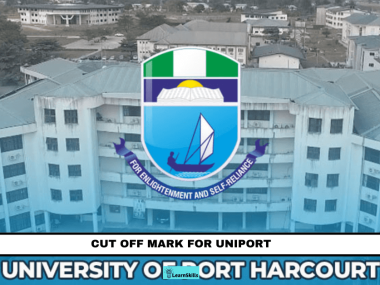When considering your options for higher education, understanding the cut-off mark for Topfaith University is crucial.
The cut-off mark for admission is set at 170. This means 170 is the minimum score you need in your UTME to be considered for placement.
Topfaith University is known for its commitment to academic excellence and offers a variety of programs. By meeting the cut-off mark, you open the door to a range of opportunities at this institution.
Understanding the Educational Landscape in Nigeria
The educational system in Nigeria consists of various institutions with different admission requirements and regulations. Knowing how these institutions operate is crucial for prospective students and their families.
Varying Admission Requirements
Each type of institution in Nigeria has different admission standards. For universities, you typically need five credits in relevant subjects at the Senior Secondary Certificate Examination (SSCE) or equivalent.
Cut-off Marks:
- Universities: Minimum of 140.
- Polytechnics: Minimum of 100.
- Colleges of Education: Minimum of 80.
These cut-off marks can vary based on the institution and the program you wish to enter. For example, Topfaith University has specific criteria set to ensure that students meet academic standards.
Role of the Joint Admissions and Matriculation Board (JAMB)
The Joint Admissions and Matriculation Board (JAMB) plays a significant role in Nigeria’s higher education system. JAMB sets the standardized exams that students must take to gain admission into universities, polytechnics, and colleges of education.
JAMB also determines the minimum cut-off marks for these institutions. This helps to regulate the quality of education and maintain standards across all higher education levels.
Additionally, JAMB conducts the Unified Tertiary Matriculation Examination (UTME), which is a requirement for most students seeking admission.
Difference Between Universities, Polytechnics, and Colleges of Education
The three main types of higher education institutions in Nigeria serve different educational purposes.
Universities focus on academic and professional degrees. They offer a wide range of undergraduate and postgraduate programs.
Polytechnics are more focused on technical and vocational education. They provide diplomas and certificates that are aimed at preparing students for specific careers.
Colleges of Education primarily train teachers. They offer programs that lead to the award of National Certificate in Education (NCE), which is essential for teaching in primary and secondary schools.
Understanding these differences helps you make informed decisions about your education and career path.
Admission Criteria for Topfaith University
When applying to Topfaith University, there are specific criteria you must meet to be considered for admission. This includes achieving a minimum cut-off mark, passing required exams, and meeting specific departmental requirements.
Minimum Cut-Off Mark
Topfaith University’s minimum cut-off mark for admission is set at 170. This means you must achieve at least this score in the Unified Tertiary Matriculation Examination (UTME) to qualify for admission.
If you meet or exceed this cut-off, it opens up opportunities for you to apply. It’s important to note that simply meeting the cut-off does not guarantee admission, as other factors, such as departmental requirements, will also play a role.
SSCE and NECO Requirements
To be eligible for admission, you must have completed your Secondary School Certificate Examination (SSCE) or the National Examination Council (NECO).
You need to obtain a minimum of five credits in relevant subjects, including English and Mathematics. These results must be achieved at no more than two sittings. This requirement ensures that you have a solid academic foundation for your chosen program.
Specific Faculty and Departmental Marks
Different faculties and departments at Topfaith University may have additional cut-off marks above the general minimum.
For instance, competitive programs may require higher scores in related subjects. It’s essential to check the specific requirements for your intended faculty.
Here are some examples:
| Faculty/Department | Minimum Required Marks |
|---|---|
| Medicine | Above 200 |
| Engineering | Above 180 |
| Arts and Humanities | Above 170 |
Meeting both the general cut-off and any specific departmental requirements is vital in the admission process. You should always verify the latest information before applying.
Comparing Cut-Off Marks Across Leading Nigerian Private Universities
When considering admission into private universities in Nigeria, cut-off marks play an essential role. Each university sets its own standards for admission, reflecting its academic expectations and competitive nature.
Below is a comparison of cut-off marks at several notable private institutions.
Afe Babalola University
Afe Babalola University, located in Ado-Ekiti, sets its cut-off mark at 160 for the Unified Tertiary Matriculation Examination (UTME).
The university offers a wide range of courses, including law, medicine, and engineering. It emphasizes high academic standards, encouraging students to achieve strong results in their relevant subjects.
Students seeking admission must also meet specific requirements, including having five credits at O’Level.
Augustine University
Augustine University, situated in Ilara-Epe, has established a cut-off mark of 160. This university provides a variety of programs, especially in fields like the sciences, arts, and social sciences. To secure admission, candidates should also possess five O’Level credits in relevant subjects.
The institution prioritizes character formation along with academic excellence, creating a holistic educational environment.
Babcock University
Babcock University, found in Ilishan-Remo, has a cut-off mark of 180 for admission through UTME. This higher requirement reflects its reputation for academic rigor.
Babcock offers programs in business, law, health sciences, and more. Students must present five credits in O’Level examinations to qualify. The university is known for its focus on ethical education and community service, enhancing student growth beyond academics.
Bells University of Technology
Bells University, located in Ota, sets its cut-off mark at 160 for UTME candidates. It offers various technological and engineering programs, catering specifically to students interested in these fields.
Like other private universities, Bells University’s admission process requires five O’Level credits in relevant subjects. The institution focuses on developing practical skills alongside academic knowledge, preparing students for the job market effectively.
Understanding the cut-off marks of these universities helps in making informed decisions about where to apply.
Supporting the Pursuit of Academic Excellence
Achieving academic excellence requires strong communication and a supportive environment. These elements can help you thrive in your studies and foster a successful academic journey.
Importance of Communication
Effective communication plays a crucial role in your academic success. It allows you to share ideas, ask questions, and seek help when needed. Engaging with professors and peers helps clarify concepts and enhances understanding.
To improve your communication skills, consider the following tips:
- Participate in discussions: Express your thoughts during classes or study groups.
- Seek feedback: Ask for input on your work to gain different perspectives.
- Utilize resources: Take advantage of workshops or seminars on communication skills.
Good communication not only empowers you but also builds a collaborative academic community.
The Role of Prayer in Academia
For many students, prayer offers a source of strength and focus. It can help relieve stress and provide clarity during challenging times. Engaging in prayer can foster a positive mindset, which is vital for achieving academic goals.
Consider incorporating these practices into your routine:
- Daily reflection: Set aside time to reflect on your goals and challenges.
- Group prayer: Join study groups that include prayer for encouragement and support.
- Mindfulness techniques: Use prayer as a tool for mindfulness to enhance concentration on your studies.
Embracing prayer can create a balanced academic life and support your pursuit of excellence.
Financial Aspects of University Education
When considering university education, financial planning is crucial. Understanding payment structures, available scholarships, and effective payment tips can help ease the financial burden.
Payment Structures for Private Universities
Private universities, like Topfaith University, often have specific payment plans for tuition and fees. You should expect to pay not just tuition but also additional costs, such as accommodation and feeding.
- Tuition Fees: The tuition varies by program. Research your program’s cost ahead of time.
- Accommodation: Many private universities provide on-campus housing, often for an extra fee.
- Additional Costs: Include books, uniforms, and technology fees.
It’s advisable to check with the university for the total cost of attendance, which will give you a better idea of your financial commitments.
Scholarship Opportunities
Scholarships can significantly reduce your financial load. For instance, Topfaith University offers scholarships for high-achieving students. You might qualify for these if you meet specific criteria.
- Criteria: Often based on your UTME score and academic performance.
- Types of Scholarships: Some cover full tuition, while others might assist with accommodation.
Make sure to keep an eye out for application deadlines and gather necessary documents early to enhance your chances of receiving financial support.
Fee Payment Tips
Managing your tuition payments effectively can alleviate stress. Here are some practical tips:
Create a Budget: Outline your expected costs and prioritize essential expenses.
Payment Plans: Inquire if Topfaith University allows installment payments. This can help manage cash flow.
Set Reminders: Keep track of payment deadlines to avoid late fees.
Use Scholarships Wisely: Apply for as many relevant scholarships as possible to supplement your payments.










